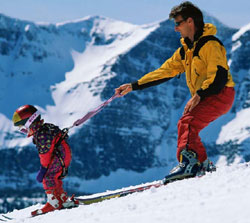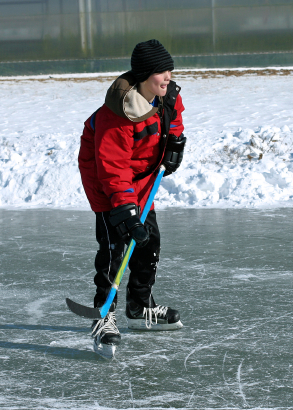Mikaela Shiffrin is a young woman on the USA Olympic ski team who, I predict, we all will be hearing a lot about at the Olympics in Sochi, Russia in February. She is a terrific ski racer and what is so interesting is how she learned to be so steady and so fast.
Her story, as chronicled recently in The Wall Street Journal, is one that every parent and coach, regardless of the sport, should read. Unlike so many American athletes these days, Mikael, with the guidance of her father, has spent years developing her skills, not by skiing in races, but simply by, well, skiing.

While other kids were spending time travelling by car or airplane to events, she was hitting the slopes. At home she watched tapes of the best skiers in the world. She learned to ski fast by skiing and perfecting her technique, and has spent far more time schussing and slaloming down mountains than any of her contemporaries at her age. The result? She is simply better and faster, not in spite of competing far less than all others but because she spent far less time racing.
For all of those parents who want to help their young athlete excel at their chosen sport - be it soccer, lacrosse, basketball, football or hockey - the lesson is clear: find a way for them to spend more time actually playing the game on the field, court, or ice, and less time in structured, supervised practice. No coaching. Just playing.
Of course, playing and practicing more and competing less is no guarantee of athletic greatness, but without it, research shows that an athlete will never achieve their full potential.
Take hockey, for example: the average youth player spends about 100 hours a year on the ice playing and practicing, much of the time in highly structured drills and practices under the watchful eye of coaches. They spend far more time travelling to what has become a ridiculously excessive number of games and tournaments, at which each player gets about 15 minutes of ice time every 90 minutes.

Imagine if a youth player could spend 300 hours a year on the ice, with over half of that time devoted to unstructured play and what used to be called, back in the day, "pick up games," without coaches or trainers. I bet they would learn to play the game very well.
Spending more time playing and less time competing would have other benefits as well: less money spent on gas, hotels, airfare, more time for kids to devote to their schoolwork (which, as I wrote recently, should be their priority, anyway), and, with far fewer games, the number of concussions and other serious injuries - which research shows occur most often in games, not practices - would likely also drop as well.
What the story of Mikaela Shiffrin tells us is this: sometime the answers to the injury epidemic in sports and the path to athletic success are staring us right in the face, if we only we could see the forest for the trees.



















